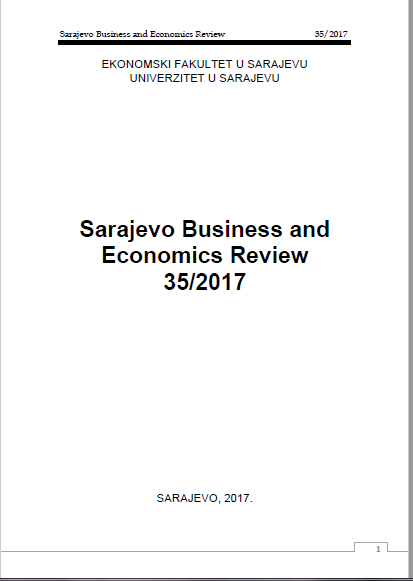POVERTY AND INEQUALITY IN BOSNIA AND HERZEGOVINA: INCOME OR CONSUMPTION APPROACH – DOES IT MATTER?
POVERTY AND INEQUALITY IN BOSNIA AND HERZEGOVINA: INCOME OR CONSUMPTION APPROACH – DOES IT MATTER?
Author(s): Rabija Somun–Kapetanović, Edin Šabanović, Adela DelalićSubject(s): National Economy, Labor relations, Evaluation research, Socio-Economic Research
Published by: Ekonomski fakultet u Sarajevu
Keywords: poverty; inequality; income; consumption expenditure;
Summary/Abstract: Household Budget Surveys (HBS) are conducted in Bosnia and Herzegovina since 2004 and are still a basis for poverty assessment in the country. Household final consumption expenditure is a monetary measure used for the estimation of living standards and poverty in Bosnia and Herzegovina. Unlike Bosnia and Herzegovina, since 2003, European Union member states conduct Surveys on Income and Living Conditions (EU-SILC) and use it for poverty and living standards measurement on the basis of household income as a monetary measure. HBS surveys were conducted in Bosnia and Herzegovina four times: in 2004, 2007, 2011 and 2015. This paper is based on HBS data from 2011 because data from 2015 are still not available for researchers. The aim of this paper is to determine differences in size, depth and severity of poverty, as well as in size of inequality in the country and its regions: Federation of Bosnia and Herzegovina, Republika Srpska and Brčko District, both by measuring poverty by using household consumption expenditure approach and by using household income approach. In accordance with the requirements of Eurostat, data collection on household incomes was significantly improved in the Household Budget Survey conducted in 2011. Data collected within this survey were used in this paper to estimate the total household income in line with EU-SILC regulations and methodology. On the basis of these estimates, we will examine whether the existing measures of poverty and inequality in Bosnia and Herzegovina were underestimated. Considering that household consumption expenditure in Bosnia and Herzegovina is supported by remittances which are not registered, neither in bank transfers nor in Household Budget Survey, loans for consumption purposes and/or by informal incomes, we will test the assumption that household consumption expenditure is significantly higher than household income. Based on this fact, the question arises: is the measurement of poverty and inequality based on consumption expenditure an adequate approach?
Journal: Zbornik radova - Sarajevo Business and Economics Review (SBER)
- Issue Year: 2017
- Issue No: 35
- Page Range: 53-72
- Page Count: 21
- Language: English

